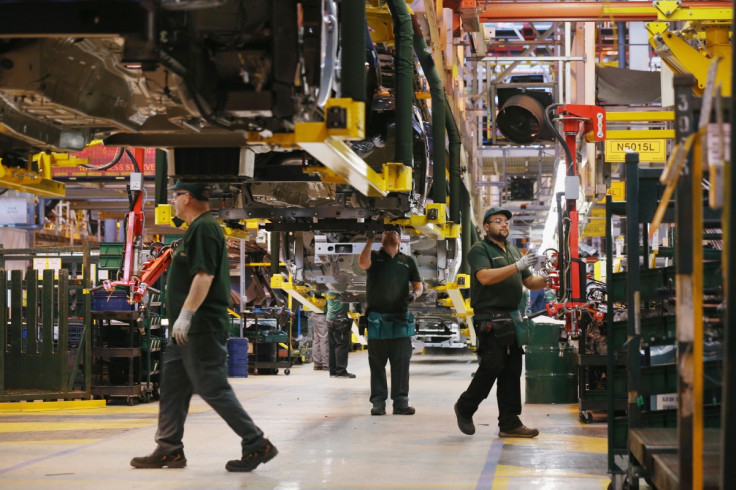UK employment at record high but wage increase sluggish on manufacturing slump

The unemployment rate continues to fall in the UK, dropping to 5.3% between July and September. The rate was at its lowest point since before the financial crash in the quarter.
With 31.21 million people in work, up 419,000 from the same quarter in 2014, the numbers are good news for Chancellor George Osborne. "We're moving towards the goal of full employment that I set out," the Tory leadership hopeful said on Twitter.
UK wages increased by 3% including bonuses and 2.5% excluding bonuses, according to research by the Office for National Statistics. The numbers suggest financial services bonuses in particular are climbing again as the sector recovers from the recession.
Considering the fact that many companies are already increasing staff pay to 2016 living wage levels, salary increases are less strong than expected. The annual growth rate in September was lower than in August.
New stats show highest employment rate ever at 73.7% & shows we're moving towards the goal of full employment that I set out
— George Osborne (@George_Osborne) November 11, 2015The sluggish wage growth is likely due to the manufacturing slump the UK and other countries are experiencing. However, production is picking up again and inflation is still near zero. If inflation takes off, economists such at Matt Whittaker, chief economist at the Resolution Foundation, argue wages should continue to rise and the government should make sure production does so as well.
"Despite the positive jobs figures, there is still plenty of scope for further growth. But getting there – and becoming a genuine world leader on employment – will require renewed policy action," Whittaker said.
As with any piece of macroeconomic data, the unemployment figures caused economists to speculate about possible moves by the Bank of England's Monetary Policy Committee. Especially following comments from governor Mark Carney that the MPC is looking away from just the inflation rate, employment figures are closely watched by economists and policy makers.
"The latest UK figures show a fairly solid labour market, but not one strong enough to warrant an interest rate rise soon," Capital Economics chief UK economist Vicky Redwood said. "There was more evidence that the falls in employment earlier this year were just a blip, with a 177,000 quarterly rise in employment in the three months to September. This was enough to push the unemployment rate down from 5.4% to 5.3%."
© Copyright IBTimes 2025. All rights reserved.






















